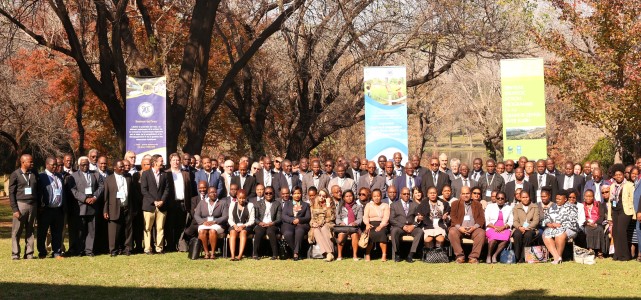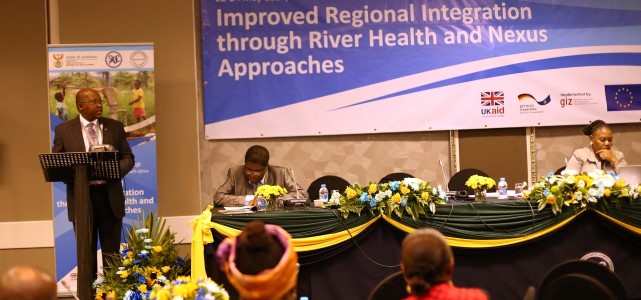This was one of the outcomes at the just concluded 7th SADC River Basin Organisation workshop held at the Vaal in South Africa.
The workshop themed “Improved Regional Integration through River Health and Nexus approaches” focused on river water quality issues and the Water-Energy-Food Nexus approaches for greater benefits and sustainability of interventions aimed at improving lives of SADC citizens. The workshop also saw the resuscitation of the Water Quality Management and Invasive Species Committee, a sub-committee of the SADC Water Resources Technical Committee (WRTC) which brings together directors of water departments, to drive the environmental water management agenda in the region.
Speaking during the closing of the two-day workshop, Phera Ramoeli Acting Director in the Infrastructure and Services Directorate SADC said that due to the number of transboundary watercourses in the region, there was need to consider common methods to monitoring river health, establishing a river health classification system, developing regional guidelines, and agreeing on minimum standards and frequency of monitoring the various common parameters.

He noted that there was a need to promote research on the impacts, management and control options, and potential controlled economic uses of aquatic and terrestrial invasive species.
The meeting agreed that there was a need to develop the technical and institutional capacity of member states, basin and regional institutions in environmental water management.
This series of workshops, of which this is the seventh as indicated, are meant to build consensus on SADC’s strategic approach to support the efforts of Member States regarding the establishment, institutional development, and strengthening of RBO’s, as well as other trans-boundary water resources management and development mechanisms in the region.
This workshop specifically supports the implementation of the SADC Regional Strategic Plan on Integrated Water Resources Management (RSAP IV) IV’s eighth programme area on “Industrialisation and Nexus Approaches” that aims to contribute to an enabling environment for accelerated industrial growth and pilot the water-energy-food approach to facilitate better understanding of the nexus approach in the SADC region. SADC is facilitating a series of political and technical nexus dialogues supported by the EU, DFID, BMZ and DANIDA. The nexus dialogues , will be organised from 2017 to end of 2018, and are expected create awareness and understanding of the water, energy, food nexus experiences in the region (including the Island States), enhance cooperation amongst relevant institutions and enable implementation of tangible projects. Bringing the sectors together to dialogue and develop an operational framework within the region will foster further collaboration and facilitate political uptake of the nexus concept at the highest level.
GWP SA as a SADC implementing agent is supporting countries and RBO’s in developing nexus integrated approaches. Through this initiative, GWP SA will contribute towards strengthening nexus thinking in the region – related knowledge management, including contributing to strengthening partnerships and allowing the use of neutral platforms for enhanced exchanges between scientific and practitioner communities. One of the key outputs of the nexus dialogue process being facilitated by GWP SA will also be identification of nexus projects working with the three sectors that will be taken forward for project preparation and structuring.
